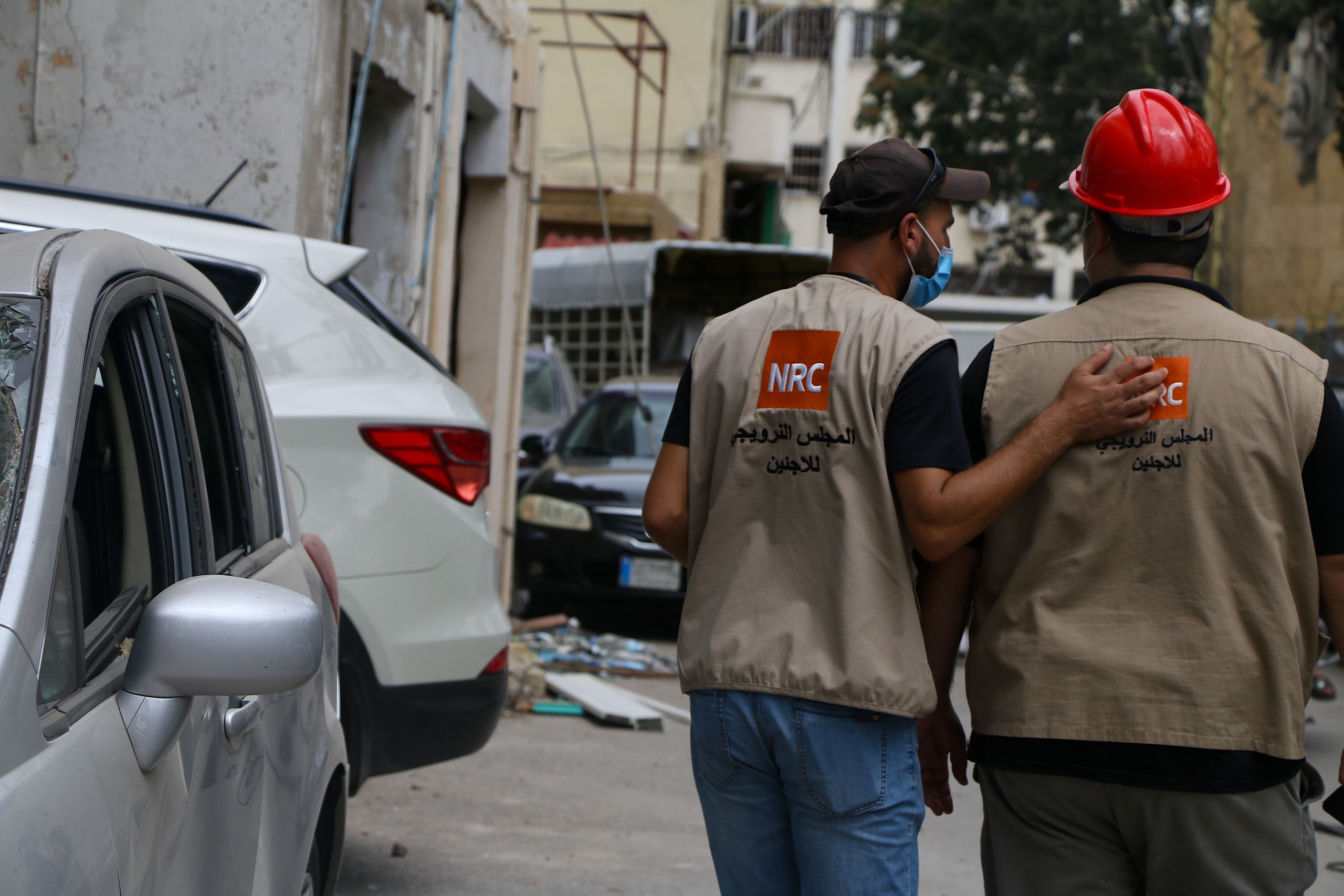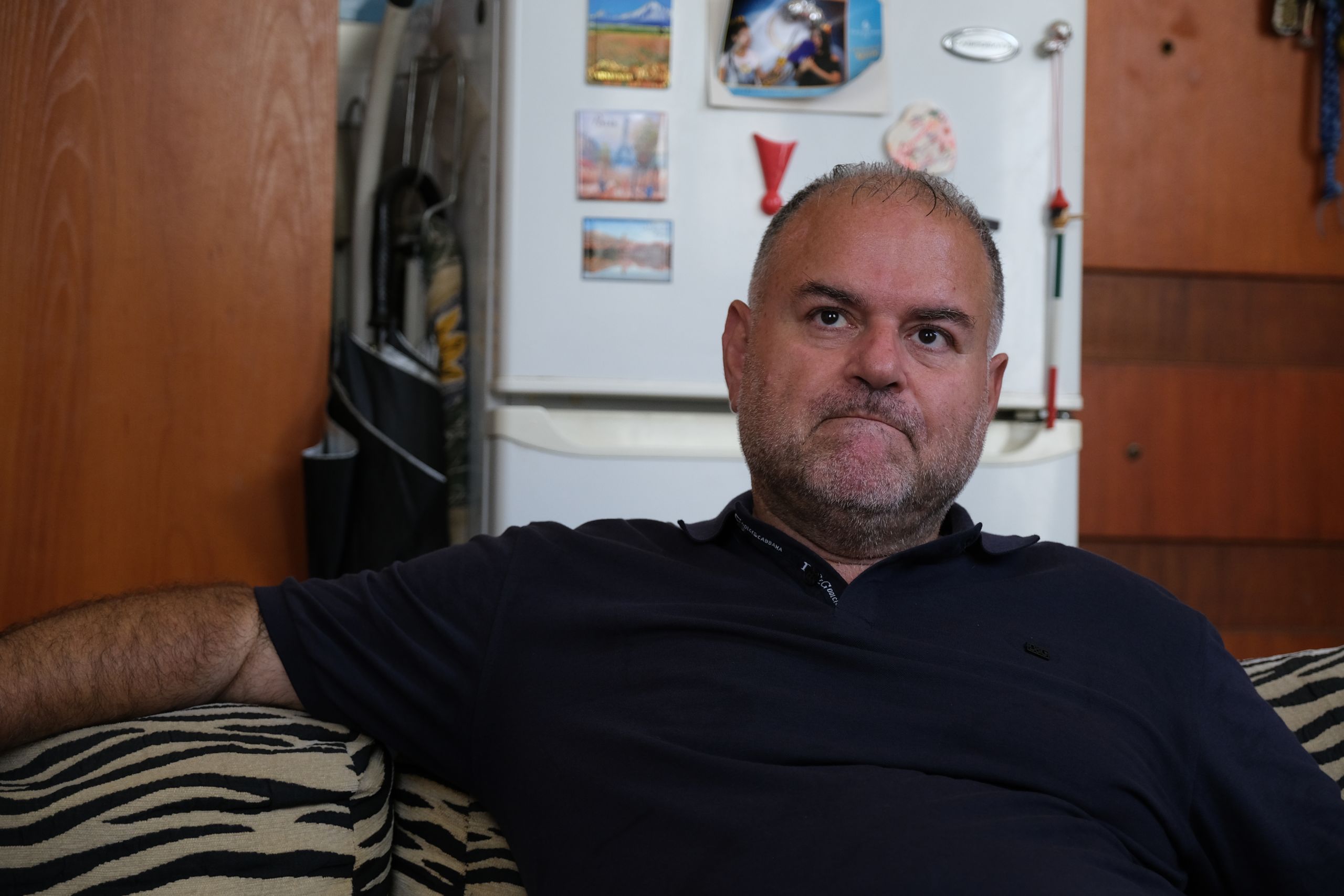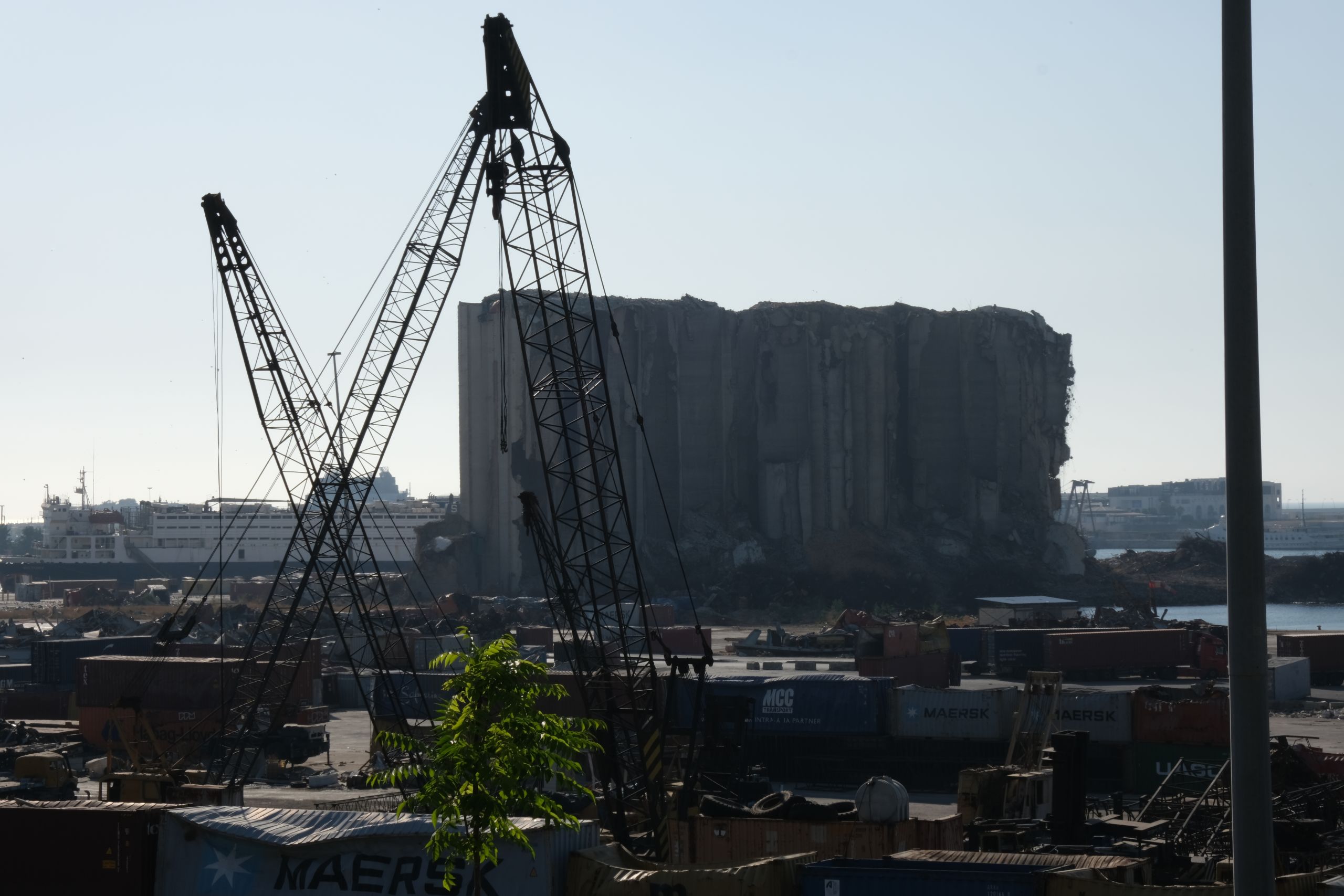Beirut explosion
One year on

“If you’ll ask me how I’m doing today, I will tell you not to ask me this question.”
Today marks one year since a devastating explosion shook the city of Beirut. We caught up with four of the people we met a year ago, right after the blast changed their homes, and their lives, forever. These four people have one thing in common: a total lack of hope for the future.
Lebanon’s annus horribilis
Lebanon continues to struggle under the weight of converging crises: complete political paralysis, an unprecedented economic collapse and an energy crisis with knock-on effects on all aspects of life.
Vulnerable Lebanese, refugees and migrant workers are increasingly dependent on humanitarian assistance, even though they would much rather provide for themselves and their families. Jobs are scarce and there is increased competition over limited resources. Tensions between communities are on the rise and there is a more vocal push across the political spectrum for refugees to return to Syria, despite the conditions not being in place for safe and sustainable returns.
The four people featuring in this story are representative of many in Lebanon today who are still dealing with the impact of the explosion.
Enduring psychological scars
A few days after the Beirut explosion, Fatima*, a 56-year-old Syrian refugee, approached us in the neighbourhood of Mar Mkhayel. She was standing outside her house with her two daughters. One of her daughters, who is disabled, suffered injuries during the explosion. The family was not only physically harmed by the explosion, they were also impacted mentally. They are still struggling with the trauma today.
Following the Beirut explosion, thousands of children were at risk of developing Post-Traumatic Stress Disorder (PTSD) or anxiety. They struggled to sleep and some were more prone to aggressive behaviour, constant crying and attachment issues.
“My 13-year-old daughter’s condition is deteriorating; she sleepwalks and cries every night. We are exhausted mentally, physically and financially,” says Fatima.
Extreme poverty across Lebanon has risen threefold during the past two years, according to the UN. More and more households are unable to afford basic services like food, healthcare, electricity, water, the internet and education.
Fatima’s husband, who used to work in the port, is now unemployed and suffers from a hand injury that he sustained in the explosion. The family now needs to rely on aid from humanitarian organisations to survive.
“We could easily access food before the explosion, but now we can’t eat meat anymore. Everything is expensive. What are our options?” Fatima worries.
The family was at risk of eviction due to their inability to pay the rent, and so they received legal and financial support from the Norwegian Refugee Council (NRC). Fatima fears that without support from aid organisations, her family will end up on the streets.
In addition to the daily struggle to survive, the family has also been confronted with another type of stress: discrimination.
“On several occasions people have told us that we shouldn’t receive aid because we are Syrians. But how can we survive without this support? We need medicine and there is no-one else to help us,” Fatima explains.
NRC fixed Fatima’s flat, and provided legal and emergency cash support through EU Humanitarian Aid and the Norwegian Ministry of Foreign Affairs funding.
*Name has been changed to protect the family's identity
Born amidst destruction
The birth of Mohammad’s daughter on the day of the explosion saved the family’s life.
For Mohammad and his family, 4 August 2020 does not only mark the day of the Beirut explosion. On this day, the family members were gathered at the hospital for the birth of daughter Jamila, when their home was almost completely destroyed by the explosion.
“We were fortunate to be at the hospital on that day. Otherwise, we would have died,” says Mohammad, a 34-year-old Syrian who has been living in Lebanon for almost 30 years.
Mohammad’s home in the Karantina neighbourhood is located directly across from the explosion site. Every single room was damaged. When we visited the family a few days after the blast, the building was uninhabitable, and the structure of the house was barely recognisable. While the damage to the flat has been repaired, the family still lives in very precarious conditions with hardly any money to cover their living expenses.
Mohammad works in a pastry shop, but his income has evaporated over the past year as a result of the collapse of the Lebanese pound, which has lost over 100 per cent of its value. Paying the rent is a constant worry.
“The owner keeps raising the rent and my house is barely one room with no kitchen!” he says. “I am afraid we might get evicted and end up on the street one day.
“When you visited us before, the explosion was the only thing we had on our minds, but today we have a lot of things to worry about. The situation today is even harder than it used to be.”
He also acknowledges the needs of the Lebanese people, who are also struggling to cope with the economic collapse of the country.
“It’s been a month since my youngest daughter has had milk. Prices have risen dramatically, and they continue to increase,” he adds. The alarming levels of poverty among refugees in Lebanon were confirmed in the most recent UN assessment, with nine out of ten Syrian refugees living in extreme poverty.
“My family and I considered returning to Syria because we are no longer able to survive here,” he explains. “Unfortunately, Syria is experiencing an economic crisis as well in addition to the ongoing conflict.”
A few months after the explosion, Mohammed and many others were optimistic that things would improve, but as the months passed, it became clear that the living conditions would continue to deteriorate.
The daily struggles are clearly impacting Mohammad’s wellbeing, as is the case for many people in Lebanon. “I have very little patience these days. I became numb after the explosion and frequently leave the house for a walk to try to calm myself down. We are under a great pressure; the corona pandemic, the explosion, the expensive prices – how much more can we endure?” he asks.
NRC’s Information, Counselling and Legal Assistance (ICLA) team helped Mohammed register the birth of his children with the support of Switzerland.
No rest for older people
“We are only alive because death is not a choice.”
According to the UN, the prices of food and beverages increased by 670 per cent between April 2019 and April 2021. More than half the population now lives below the national poverty line. With unemployment rates on the rise, more and more households are struggling to access basic services, including healthcare.
For many citizens, the explosion has worsened a situation that was already fragile. Hayat has been living in Karantina, one of the districts most affected by the blast, for the last 30 years.
As we speak to Hayat, it becomes clear that she is still struggling to process the shock she experienced. Today, we are sitting in her apartment remembering the day of the explosion as if it happened yesterday.
Hayat shows us a picture, taken on 4 August 2020, of her son lying on a hospital bed with stitches all over his body.
“My son lost his job in a tyre store after the explosion. My other son works as a taxi driver and can barely support his own family because of the ongoing fuel crisis,” she says.
Hayat compares the situation before and after the explosion. With the ever-increasing prices, she and her family can no longer afford to eat meat.
“The economic crisis has worn us down,” she says. “People my age should be resting rather than working, but in Lebanon, you may be 100 years old and still wandering the streets in order to put food on the table.”
NRC repaired Hayat’s house after the blast and provided legal assistance related to housing, land and property rights, with the financial support of the German Federal Foreign Office (GFFO).
Struggling to make ends meet
When we met Hovsep, 54, for the first time, shortly after the Beirut explosion, he shared his concerns about surviving the winter in his damaged home. He lives in Mar Mkhayel, one of the most heavily affected neighbourhoods in Beirut. He lost his job as a chef after the explosion.
“Restaurants closed for several months; some are still closed now,” he says. “Prices are so extremely high now so people, apart from foreigners, can no longer afford to eat at a restaurant.”

“NRC repaired my house and supported me in paying the rent,” says Hovsep. Photo: Zaynab Mayladan/NRC
“NRC repaired my house and supported me in paying the rent,” says Hovsep. Photo: Zaynab Mayladan/NRC
In the midst of a deepening economic and financial crisis, Lebanese people like Hovsep are struggling to make ends meet. As a coping strategy Hovsep reduces his expenses to survive.
“Time has flown since the explosion, yet we are approaching even worse days. We can’t even buy chicken or cheese anymore!” he exclaims.
Hovsep received cash for six months to cover his rent from NRC with the financial support of the German Federal Foreign Office (GFFO), and NRC’s quick fix team made minor shelter repairs to his home through support from EU Humanitarian Aid.
Beyond the blast

One year after the Beirut explosion, the damaged homes have been repaired. However, many vulnerable Lebanese, refugees and migrant workers continue to face enormous challenges: joblessness, rising poverty, eviction risk and dependence on aid organisations.
For the people in Beirut and the rest of Lebanon to stand on their feet again, the country needs wide-ranging governance reforms and long-term international support to create jobs, provide services and social protection. In the meantime, the Norwegian Refugee Council will continue to address the immediate needs of the most vulnerable.
Since the devastating explosion shook Beirut on 4 August 2020, the Norwegian Refugee Council (NRC) has supported over 18,000 people with shelter, water, sanitation and hygiene interventions, psychosocial support for children, legal services and emergency cash assistance. Read more about our response.

